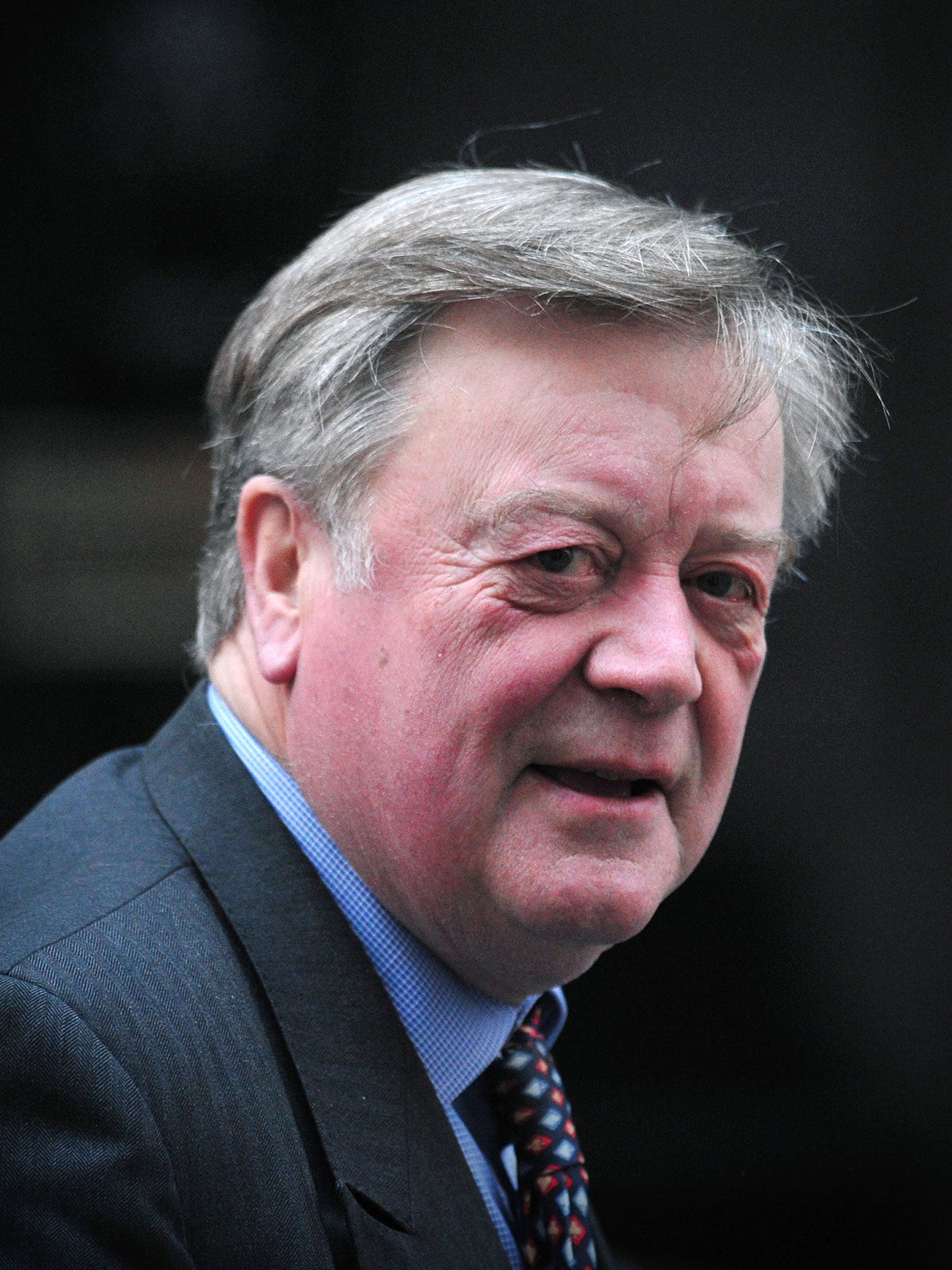Ken Clarke says Tories’ imitation of Nigel Farage boosted Ukip’s chances
The Prime Minister is preparing an attempt to regain the political initiative following Tory defeats at Ukip’s hands

Your support helps us to tell the story
From reproductive rights to climate change to Big Tech, The Independent is on the ground when the story is developing. Whether it's investigating the financials of Elon Musk's pro-Trump PAC or producing our latest documentary, 'The A Word', which shines a light on the American women fighting for reproductive rights, we know how important it is to parse out the facts from the messaging.
At such a critical moment in US history, we need reporters on the ground. Your donation allows us to keep sending journalists to speak to both sides of the story.
The Independent is trusted by Americans across the entire political spectrum. And unlike many other quality news outlets, we choose not to lock Americans out of our reporting and analysis with paywalls. We believe quality journalism should be available to everyone, paid for by those who can afford it.
Your support makes all the difference.David Cameron has been accused by Kenneth Clarke, a former cabinet minister, of boosting Ukip by allowing the Tories to imitate Nigel Farage’s stance on Europe and immigration.
The Prime Minister is preparing an attempt to regain the political initiative following the Tory defeats at Ukip’s hands in last week’s Rochester and Strood by-election and last month’s Clacton by-election. Within the next week, he will set out proposals to restrict EU workers’ right to come to Britain and limit their entitlement to benefits.
The pressures were underlined today as the Home Secretary, Theresa May, admitted that the Government was heading for failure over its promise in 2010 to achieve deep cuts in immigration.
And arch eurosceptic Owen Paterson, a former Environment Secretary, will tomorrow challenge Mr Cameron to take a tougher stance with Brussels in negotiations over wresting powers back to Britain.
Mr Clarke, who stepped down as a minister in the summer, said the Tories and Labour alike had inadvertently fuelled Ukip’s popularity.
“I do think the tactics of the two major parties of government, the serious parties of government, of trying to imitate Ukip since then have actually made [Ukip] more credible and has gifted [the party] two by-elections,” Mr Clarke said yesterday.
“We were campaigning in a way that was supporting their anti-European, anti-immigration front running things.
He added: “We’ve got to get back to a serious agenda where Ukip has no policies worth talking about – on the economy, on the health service, on education.”
He was echoed by Charles Walker, the vice-chairman of the Tory 1922 backbench committee. “We know that Ukip’s leadership dislikes foreigners – but that is their problem, not ours,” Mr Walker wrote in the Mail on Sunday.
“So why, through our own electoral literature, did we try so hard to legitimise Nigel Farage’s scaremongering?”
However, Lord Tebbit, a former Tory chairman, protested that the PM misjudged the public mood when he ridiculed Ukip supporters in 2006 as “fruitcakes”. He said: “I don’t think he has handled the misgivings of a huge number of people outside Westminster ... in a sensible way.
“The last way to persuade people to come back and support you is to abuse them as nutcakes and loonies.”
Before the last election, Mr Cameron pledged to oversee a reduction in the net annual migration rate from hundreds of thousands to tens of thousands over the course of a parliament. But the latest statistics showed net migration jumped to 243,000 in the year to March, a rise of 68,000, and fresh statistics this week are set to reveal a similar figure.
Mrs May told BBC1’s Andrew Marr Show: “It is of course unlikely that we are going to reach the tens of thousands by the end of the parliament. Why is that? It is because we have seen increasing numbers of people coming from across Europe.”
Join our commenting forum
Join thought-provoking conversations, follow other Independent readers and see their replies
Comments